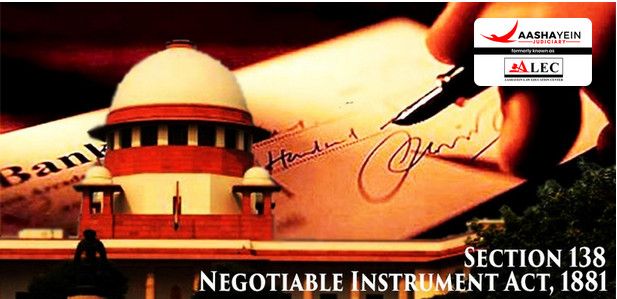The case deals with the issue of whether a resigned director of a company can be held liable under Section 141 of the Negotiable Instruments Act, 1882 (“NI Act”) for cheques issued by the company after their resignation. The Supreme Court quashed the High Court's decision, clarifying that liability under Section 141 cannot be imposed on a person who was no longer a director at the time of the issuance of the cheque.
Provisions:
1. Section 138, NI Act: Deals with the offence of dishonor of cheques.
2. Section 141, NI Act: Establishes vicarious liability for offences by a company but limits it to persons responsible for the company's conduct at the time of the offence.
FACTS:
The Appellant, Adhiraj Singh, was a director in a company until he tendered his resignation on 21.06.2019, which was deemed effective from the same date and filed with the Registrar of Companies on 26.06.2019. On 12.07.2019, the company issued three post-dated cheques dated 17.07.2019, 17.09.2019, and 23.09.2019 towards a legally existing debt. These cheques were subsequently dishonored, leading to proceedings under Section 138 of the Negotiable Instruments Act, 1882. The Appellant argued that he could not be held liable under Section 141 of the NI Act, as he had resigned prior to the issuance of the cheques and was no longer associated with the company’s affairs. Despite this, the Himachal Pradesh High Court refused to quash the proceedings, prompting the Appellant to approach the Supreme Court.
You can also read the Blog by visiting [Blog]
For more information, visit [Aashayein Enquiry Section]
ISSUES:
1. Whether a resigned director can be held liable under Section 141 of the NI Act for a cheque issued by the company after their resignation.
2. Whether the resignation and its timing absolve the director from liability for dishonored cheques under Section 138 of the NI Act.
CONTENTION OF PETITIONER:
Petitioner had resigned on 21.06.2019, well before the issuance of the cheques on 12.07.2019. He was not involved in the company's affairs when the cheques were issued and dishonored.Under Section 141 of the NI Act, only those responsible for the conduct of the company’s business at the time of the offence could be held liable.It was further argued that holding him liable would amount to misuse of the process of law.
CONTENTION OF RESPONDENT:
The Respondents argued that the Appellant was a director at the time the debt was incurred. They contended that the factual question of the resignation’s timing and the Appellant’s liability should be determined during the trial. Reliance was placed on Malva Cotton and Spinning Mills Ltd. v. Virsa Singh Sidhu (2008), where the director's liability was examined despite claims of resignation.
ANALYSIS BY THE COURT
The Supreme Court noted that the Appellant had resigned before the cheques were issued. Section 141 of the NI Act provides that only those responsible for the company’s business during the commission of the offence can be held liable. Since the Appellant was not a director when the cheques were issued, he could not be connected to the offence. The Court distinguished the case from Malva Cotton, where the resignation was submitted after the issuance of the cheques. Here, the resignation was effective before the cheques were issued. The Court emphasized that forcing the Appellant to face trial would amount to an abuse of the judicial process.
CONCLUSION:
The Supreme Court allowed the appeal and quashed the High Court's order. It reiterated that liability under Section 141 of the NI Act cannot extend to individuals who have resigned and are no longer responsible for the company’s affairs. The judgment reaffirms the principle that liability for cheque dishonor is linked to responsibility at the time of the offence.

